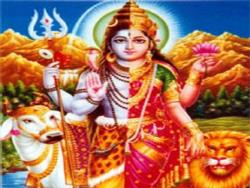Nepalese teachers trained again by colleagues and lgbt-activists

10 August 2019 - Nepalese teachers were trained again on how to deal with LGBTI issues in their schools. With assistance of the Blue Diamond Society, the Chetana teacher training group and GALE, training were offered in previous years as well. The partners have sought funding to expand these trainings beyond the province of Pokhara, but the unique trainings remain on limited to a few schools because donors do not consider it a priority on the same level as (heterosexual) gender violence.
Teacher training each other
One of the unique aspects of these training is that they are given by heterosexual cisgender teachers. They are sometimes motivated because their own child is “third gender”. In Nepal, “third gender” is a common term to label different kinds of transgender people, which sometimes is also taken to include same-sex preference. In Nepal, men who choose to transition are called metis. For other teachers, their motivation is because they encounter harsh discrimination of and gender violence towards boys who behave effeminate, leading to them being bullied in schools and in their village and eventually often ejected by their parents. Such boys and also gender non-conforming girls then have to feel to a larger city where they can often only survive by begging or prostitution.
The Chetana teacher group cooperates with the national LGBTI organization Blue Diamond Society to get more information and on the trainings. Several attempts have been made to secure funding for the successful trainings in Pokhara, or even upscaling them to other regions. Although international donor are eager to fund projects against gender violence, LGBTI-gender violence still seem to be a no-go area. Good proposals have been rejected without comments.
The ambiguous role of Hinduism
One challenging area in the trainings is how to deal with Hinduism. In Nepal, most of the population is Hindu and conservative. The trainers are also Hindu, and they are aware that some Hindu conservative traditions promote inequality in general and gender inequality and violence. This does not mean that Hindu religion is rejected but that there is a need to change destructive views and consequences.
In the training, there is ample attention for how Hindu religion views changing sex, same-same love and different types of family constellations. There are numerous gods that have changed sex or are a combined male/female sex, that display same-sex love and gods the produce children without having a partner, or gods that are born of another god without partner.
Religious Hindu texts are ambiguous about all of this. “Third gender” people or metis were always there, and are sometimes taken for granted and sometimes with some disdain. This could be because they are seen as part of the lower castes, but gender stereotypes also play are role: effeminate men are seen as weak and cowardly (like women).
Brahmans are the highest priest caste and they are supposed to be extraordinary pure in a religious sense. This can also mean not having sex or purifying your self after sex. Punishments for impurity differ. In an old text it has the heavy fine of losing caste status. But in the same text another more moderate penance is mentioned: taking a bath with your clothes on, eating from a cow and fasting. Punishments were mainly for higher castes, while among lowers castes being third gender or having same-sex was considered more common and not needing punishment. Punishments for lesbian sex were more harsh then gay sex, but seem to be more concerned virginity then with the same-sex aspect.
Training
In the trainings, basic information about all of this is given to create awareness about the unfair treatment that results from history. Possibilities to improve the situation of metis in schools are discussed, like not punishing gender non-conforming behavior, gender-neutral bathrooms, anti-gender violence curricula and cooperation with the local community.
Source: Chetana, personal communication and training resources.


